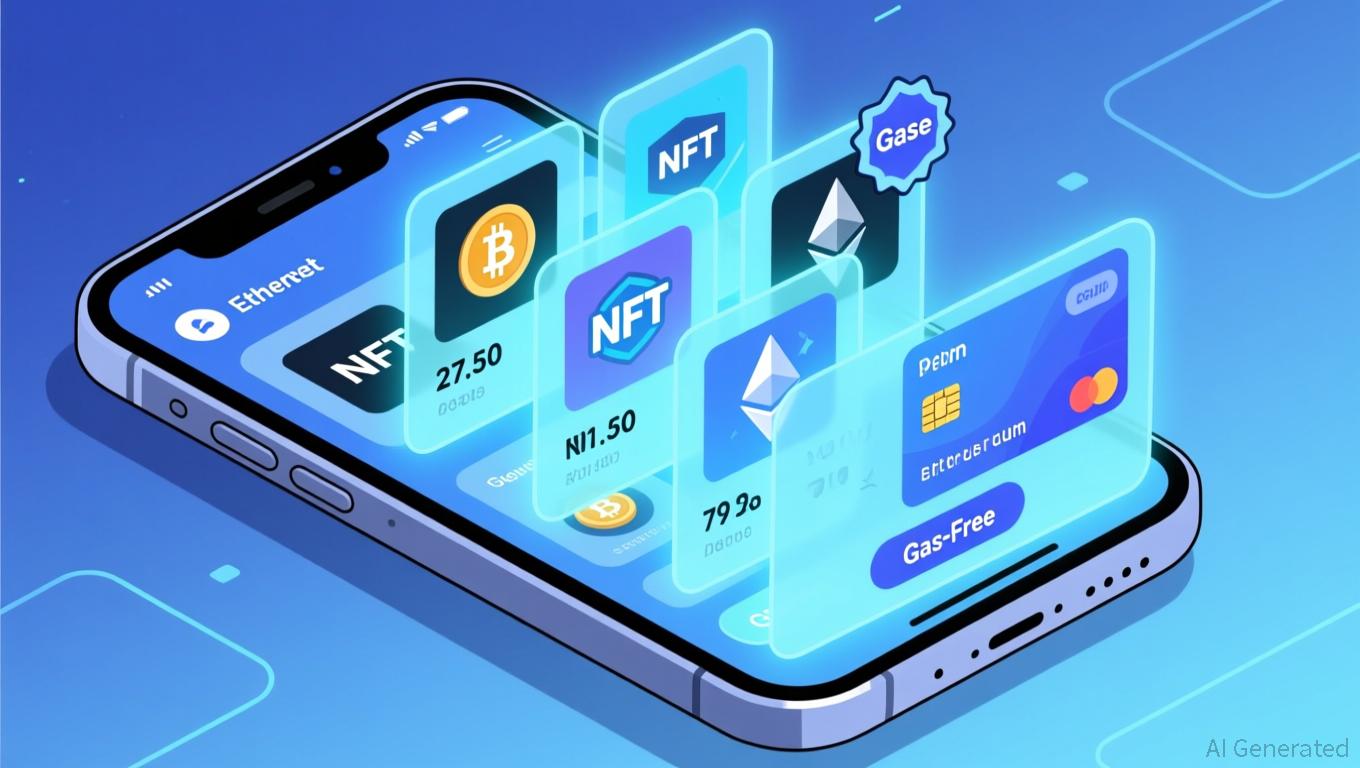HOT rises by 2.42% on November 12, 2025 following Pelephone’s updated offer for Hot Mobile
- HOT token rose 2.42% on Nov 12, 2025, amid Pelephone’s revised $565M bid for Hot Mobile, though it fell 72.66% annually. - Pelephone, a Bezeq subsidiary, raised its offer to NIS 2.1B (time-limited until Nov 16), competing with a $378M bid from Gil Sharon’s consortium. - Hot Mobile’s Q3 revenue reached NIS 517M with 2.66M subscribers, as Altice seeks to reduce debt through the sale. - Technical indicators show mixed trends, with short-term stabilization but long-term bearish pressure, as investors monitor
As of November 12, 2025, HOT was valued at $0.000635, marking a 2.42% rise compared to the previous day. Despite this short-term uptick, the token has suffered notable losses over longer periods—falling 13.74% in the past week and plummeting 72.66% over the last year. On a brighter note, HOT has managed a 2.92% recovery in the last month. These price shifts coincide with renewed attention on Hot Mobile, an Israeli telecom company, following an increased acquisition bid from Pelephone.
Pelephone, which operates under Bezeq Israel Communications Ltd, has raised its offer for Hot Mobile to NIS 2.1 billion (about $565 million), up from its earlier NIS 2 billion proposal. This latest bid, valid until November 16, intensifies the ongoing competition for Hot Mobile, currently owned by billionaire Patrick Drahi’s Altice International. With Altice aiming to reduce its debt, the likelihood of a sale has grown. Pelephone has clarified that the updated offer is non-binding and that discussions are still in flux. Meanwhile, a rival group led by billionaire Gil Sharon has put forward a NIS 1.4 billion bid, which is seen as having a smoother path to regulatory approval.
The increased bid from Pelephone has attracted international attention, given Hot Mobile’s significant presence in Israel’s telecom sector. The company reported third-quarter revenues of NIS 517 million, serving 2.66 million customers and achieving a record ARPU of NIS 48. Pelephone’s leadership has reiterated its focus on maintaining financial discipline and preserving its AA credit rating, factors that could bolster investor trust in the acquisition process.
Technical analysis points to a mixed scenario for HOT. While the token saw a modest gain over 24 hours, the weekly decline signals persistent bearish sentiment. The monthly rebound may hint at short-term stabilization, but the steep annual drop highlights ongoing long-term difficulties. Given the volatility, investors are closely watching both the outcome of the Hot Mobile acquisition and broader trends in Israel’s telecommunications industry.
HOT’s price movements seem to reflect the wider uncertainty in the market regarding corporate acquisitions and industry consolidation. Although the recent daily increase is encouraging, it does not yet indicate a lasting upward trend. The prolonged declines suggest that a more substantial catalyst—such as a completed acquisition or a significant market shift—may be needed to spark sustained bullish momentum.
Backtest Hypothesis
To better understand HOT’s recent price swings and the impact of the Pelephone bid, a backtesting approach could shed light on how similar events have historically influenced price trends. For example, one could examine instances where prices dropped by at least 10% over a rolling seven-day period and analyze subsequent performance. This strategy could help determine if HOT’s recent 13.74% weekly drop is consistent with patterns observed in comparable assets during similar circumstances.
By implementing this method with HOT or a similar token, investors can evaluate whether the current price pullback signals a buying opportunity or the continuation of a downward trend. The findings from such a backtest would provide a data-driven perspective on HOT’s medium-term prospects, especially in light of the Pelephone offer and broader market factors.
Disclaimer: The content of this article solely reflects the author's opinion and does not represent the platform in any capacity. This article is not intended to serve as a reference for making investment decisions.
You may also like
Crypto wallets are transforming into comprehensive platforms, connecting Web3 with traditional financial services
- D'CENT Wallet's v8.1.0 update enables multi-wallet management for up to 100 accounts, streamlining digital asset handling across investment, NFTs, and events. - Competitors like Exodus and Blaqclouds advance crypto adoption through features like Mastercard-linked debit cards and decentralized identity systems with biometric security. - Innovations such as fee-free transactions (D'CENT GasPass) and on-chain identity management (.zeus domains) highlight industry focus on accessibility and security for main

Grayscale's Public Listing: Advancing Crypto Adoption as Regulations Vary Worldwide
- Grayscale files U.S. IPO via S-1, joining crypto firms like Circle and Bullish in public markets. - IPO details remain undetermined, contingent on SEC review and market conditions. - Japan's TSE tightens crypto listing rules amid volatile "crypto hoarding" stock collapses. - U.S. regulators advance crypto rulemaking post-shutdown, potentially accelerating Grayscale's approval. - Grayscale's IPO highlights crypto's institutional push amid global regulatory divergence.

BNY's Stablecoin Fund Connects Conventional Finance with Around-the-Clock Digital Markets
- BNY Mellon launches BSRXX, a regulated fund enabling stablecoin issuers to hold GENIUS Act-compliant reserves without direct stablecoin investments. - The fund supports 24/7 digital markets by providing ultra-safe, short-term liquidity under federal requirements for stablecoin backing. - Anchorage Digital's participation highlights growing institutional adoption, with stablecoin reserves projected to reach $1.5 trillion by 2030. - BNY's $57.8T custody expertise positions it as a key infrastructure provid
Durov's Legal Victory Highlights the Ongoing Struggle Between Privacy and Government Oversight
- French authorities lifted a travel ban on Telegram CEO Pavel Durov after he complied with judicial supervision for a year. - Durov faces charges of complicity in alleged Telegram misuse for crimes, with potential 10-year prison and $550k fine if convicted. - He criticized French legal procedures and Macron's policies, highlighting tensions over digital privacy and blockchain integration. - The case underscores regulatory challenges for encrypted platforms, balancing user rights with accountability in a "
